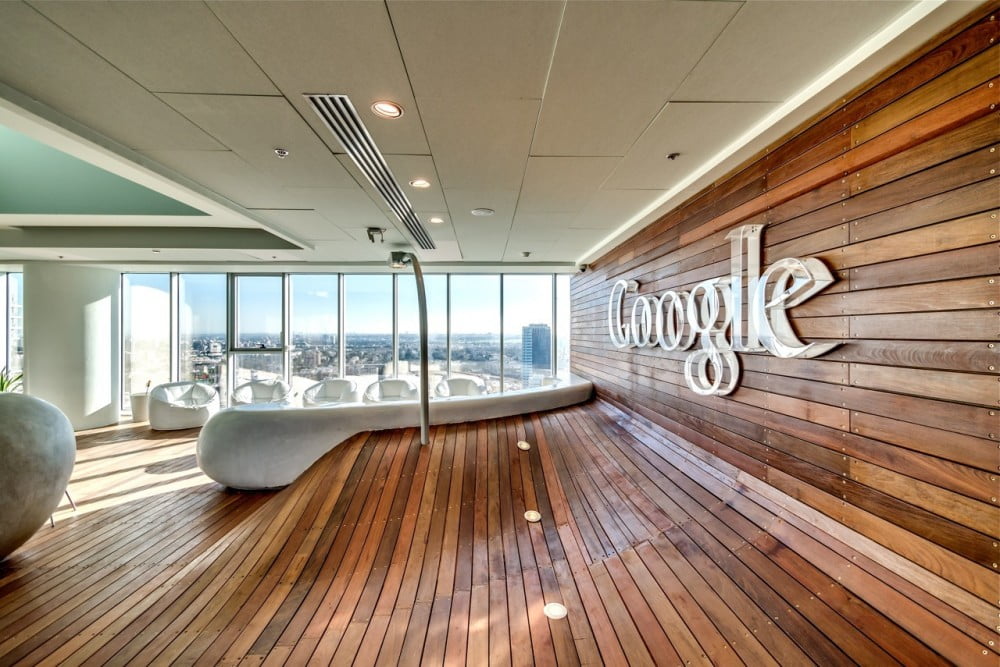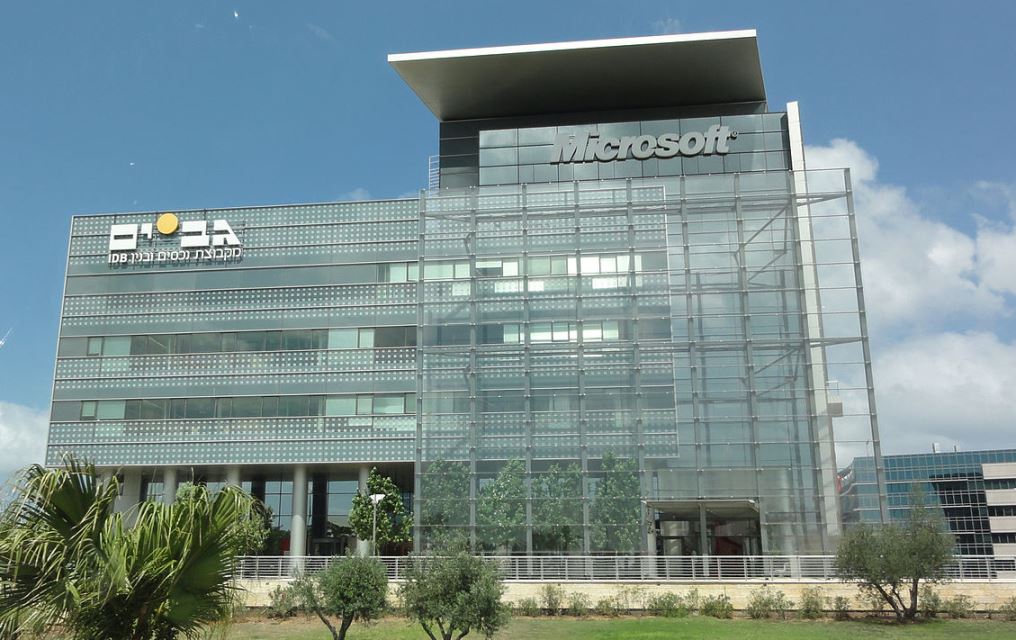They all want a piece of the Israeli pie: Microsoft, Google, Apple – dozens of large, multinational companies have chosen to establish offices and R&D centers in the Startup Nation. Why did they all pick Israel and what exactly are they doing here?
It’s a little known fact that two thirds of all R&D employees in Israel are employed by foreign companies such as HP and Microsoft, according Israel’s Central Bureau of Statistics. Currently, there are 250 R&D centers of foreign high-tech companies in Israel, according to IVC Research Center. The heavy presence of multinationals in Silicon Wadi clearly affects the local economy; consider this: Intel Israel is responsible for almost a tenth of Israel’s overall exports!
SEE ALSO: What Will It Take To Breed More Israeli ‘Unicorns?’
Some of the most active companies locally include international technology giants such as Intel and IBM, which set up shop in Israel in the early 70’s and have grown exponentially to employ thousands of local employees. Some of these companies’ latest technologies are being developed in Israel, for example: several components of IBM’s highly praised Watson (its artificially intelligent computer), or Intel’s super-fast Core 6 processors.
Thanks to multinational R&D centers, Israel is now a patent powerhouse. Over the past year, the number of Israeli patents filed in the US jumped 21 percent, making it the third-largest patent filer per capita, according to a study by Israeli business data firm BdiCoface. Only Japan and Taiwan outranked Israel. According to BdiCoface, between 2009 and 2013, IBM produced the most patents in Israel (674), followed by Intel (435), Marvell (281), SanDisk (261) and HP (197).
SEE ALSO: Intel Tech Puts Backpacks On Bees To Track World Bee Collapse
So, why are the big kids playing in the small Israeli playground? NoCamels rounded up the largest Israeli R&D centers of international high-tech companies to reveal the importance of their local presence to their overall success.
Intel
With roughly 10,000 employees in six locations across Israel, Intel is the largest multinational high-tech company in the Holy Land. It has four development centers in Haifa, Yakum, Petach Tikva and Jerusalem, as well as manufacturing facilities in Kiryat Gat and Jerusalem. Recent statistics show that in 2014, Intel exports accounted for 9 percent of total goods exported from Israel.
Intel picked Israel for its first R&D center outside the US approximately 40 years ago. Since the chipmaker set up shop in Israel, it has developed a series of breakthrough computer processors and has evolved beyond hardware.
“We’re so much more than a chipmaker today,” Guy Bar-Ner, director of sales and marketing for Intel Israel, tells NoCamels. Indeed, earlier this month Bar-Ner presented some of Intel’s most cutting-edge technologies at the DLD Tel Aviv Conference, including Internet of Things solutions for airports. The company recently opened an IoT lab in Israel, which also serves as an incubator for startups in this field.
Maxine Fassberg, president of Intel Israel, said during a DLD panel discussion that Intel is in Israel “because we’re after the talent and the creativity of the Startup Nation.” According to Fassberg, “Israel is crucial to Intel. Intel cannot do without the geniuses here in Israel.”
IBM
Roughly 1,000 employees work at IBM’s R&D labs in five centers across Israel. The computer giant launched a startup accelerator program in Israel last year, and has acquired more than a dozen Israeli companies for a total of $2 billion over the 40 years since it set up shop here.
IBM Israel employees work on a large number of projects involving big-data analytics, software, cognitive computing, application security and more.
There’s no doubt IBM is invested in Israel, or as IBM Israel’s passionate CEO Rick Kaplan said at the DLD conference: “We’ve acquired 13 companies here, we invest in them, we grow them.” He explained that IBM puts its offices “where the talent is,” and added that Israel is the company’s No. 2 office in terms of patents.
IBM Israel is working on cyber-security as well. “Israel has set a target to create a cyber-center for the world. It’s our goal, too. Our lab will grow only if Israelis bring tremendous value, like they do with IBM Watson.”
What’s so special about Israel in his opinion? “The state is now reaching out to eighth graders. By the time they enlist in the military service at age 18, they have advanced degrees in math. It’s an amazing proposition,” Kaplan said.
Sign up for our free weekly newsletter
SubscribeGoogle made waves locally when it acquired Israeli mobile navigation app Waze for $1.3 billion in 2013. The internet giant currently employs more than 500 people in Israel, in two R&D centers established in 2012 – Tel Aviv and Haifa. Google’s engineers generally work on products for Google’s global markets, including the company’s search engine, apps and social products, as well as on core Google infrastructure.
“Israel has become one of the fastest growing centers in all of Google, now reaching the order of some 500 or so engineers alone, and one of the biggest areas we specialize in is search,” Yossi Matias, who heads Google Israel and serves as Google’s VP of Search, recently told NoCamels.
Naturally, Google’s local sales team works with advertisers locally, but it also manages operations in Middle Eastern, African and European markets.
Microsoft
Microsoft’s Israeli R&D center is one of three strategic global development centers and home to some of the company’s most innovative technologies. The center’s 1,000 employees work on big data, business intelligence, cloud storage and artificial intelligence. Microsoft also operates a local startup accelerator-venture capital combo called Microsoft Ventures.
Over the past years, the software behemoth has acquired several Israeli companies, including security startup Aorato and software companies Equivio and N-trig. Earlier this month, Microsoft finalized its acquisition of Israeli cloud-security startup Adallom for $250 million.
Following the acquisition of Adallom, it is possible that Microsoft will eventually open a cyber-security research center in Israel, according to reports in the Israeli media.
The renowned social network – which purchased several Israeli startups in recent years – is one of the latest international giants to set up shop in Israel. The newcomer’s presence in Israeli is rather small, with about 40 employees, mostly in marketing.
However, its presence in Israel is important to the company’s leadership, according to Adi Soffer Teeni, CEO of Facebook Israel.
“Facebook looks at Israel as the place to be,” she said at the DLD conference. “There’s so much they can learn from Israelis. Israelis move fast, they don’t wait for an answer, that’s how you get things done. That’s why Facebook likes Israel. They’re amazed every time they come here.”
Apple
Apple is the latest company to open offices in Israel. Earlier this year, the consumer electronics giant inaugurated its R&D center in Israel, which employs about 800 people, including employees of Israeli startups Apple has acquired over the years, such as Anobit and PrimeSense.
According to reports in the media, Apple also wants its Israeli team to develop computer chips in-house, instead of relying on third-party suppliers.
In addition to taking part in developing Apple’s computers, mobile devices and online services, some employees take part in regional marketing and sales efforts.
From HP and Marvell to Amazon, numerous companies want a piece of the action
Additional multinational companies with a significant presence in Israel include computers giant HP (about 6,000 employees); IT giant Cisco (1,800 employees); semiconductors manufacturer Marvell, with roughly 1,200 employees in Israel; EMC2 (1,000); Broadcom (800); Amazon (180); and Yahoo (about 100), which recently picked Israel as the location for its first startup accelerator.
Clearly, multinational companies look for local talent, creative thinking and perhaps a grain of Israeli chutzpa. In return, they get a team of Israelis eager to prove themselves. Or, as Israeli Yoelle Maarek, who leads Yahoo’s regional office, said earlier this month at DLD: “We want to be critical to the company; we want to be the leaders.”
Photos: Pikiwiki, companies
Related posts

Editors’ & Readers’ Choice: 10 Favorite NoCamels Articles

Forward Facing: What Does The Future Hold For Israeli High-Tech?

Impact Innovation: Israeli Startups That Could Shape Our Future









Facebook comments